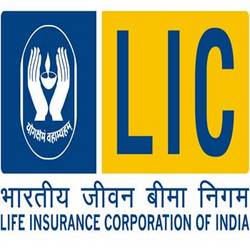Important Insurance terms
As LIC AAO exam is near we are here with the important Insurance terms which may be asked in the upcoming LIC AAO exam.
- Actuary: A specialist in the mathematics of insurance who calculates rates, reserves, dividends and other statistics
- Annuity: An agreement by an insurer to make periodic payments which continue during the survival of the annuitant(s) or for a specified period.
- Claim: A demand made by the insured, or the insured’s beneficiary, for payment of the benefits as provided by the policy.
- Coverage: It is the range of protection that you are provided under an insurance policy.
- Death Benefit: The limit of insurance or the amount of benefit that will be paid in the event of the death of a covered person.
- Deductible: The amount you have to pay out of pocket for expenses before the insurance company will cover the remaining costs.
- Endowment Insurance: Endowment insurance pays the sum assured upon the death of the life insured during the policy terms or on survival to the end of the policy term.
- Exclusive: Things that are not covered under the policy
- Indemnity: Restoration to the victim of a loss by payment, repair or replacement.
- Insurable Interest: Interest in property such that loss or destruction of the property could cause a financial loss.
- Maturity value: It is the amount the insurance company has to pay you when the policy matures. This would include the sum assured and the bonuses.
- Paid-up value: If you stop paying the premiums, but do not withdraw the money from your policy, the policy is referred to as paid-up.
- Peril: It is the causes of the possible loss or damage.
- Policy: Policy is the legal document issued by the insurance company that outlines the general terms and conditions of the insurance.
- Premium: It is the amount you need to pay to the insurance company.
- Reinsurance: In effect, insurance that an insurance company buys for its own protection. The risk of loss is spread so a disproportionately large loss under a single policy doesn’t fall on one company. Reinsurance enables an insurance company to expand its expanding volume; secure catastrophe protection against shock losses; and withdraw a specified time period.
- Renewal: The automatic re-establishment of in-force status effected by the payment of another premium.
- Rider: It is an optional feature that can be added to a policy. You will have to pay an additional premium to avail this benefit.
- Subrogation: It is the right for an insurer to pursue a third party that caused an insurance loss to the insured. This is done as a means of recovering the amount of the claim paid to the insured for the loss.
- Sum assured: It is the amount of money an insurance policy guarantees to pay before any bonuses are added. In other words, sum assured is the guaranteed amount you will receive. Halfway through the policy, you might want to discontinue it and take whatever money is due to you.
- Surrender value: This is the amount payable at the end of specified duration. These amounts are fixed and predetermined.
- Insurance Settlement: A payment on an insurance claim. That is, when a valid insurance claim is made, the insurer makes a payment to the policyholder. This is call the insurance settlement.
- Lapse: Termination of a policy due to failure to pay the required renewal premium.
- Term insurance: It is the most traditional life insurance policy wherein the insured gets death benefit if any contingency happens within the policy term. The insured is, however, not entitled to receive any survival benefit if he outlives the policy term.
- Underwriting: The process of selection risks for insurance and determining in what amounts and on what terms the insurance company will accept. Unlike a term insurance cover, if you live, an amount will be paid to you on maturity of the plan.




















